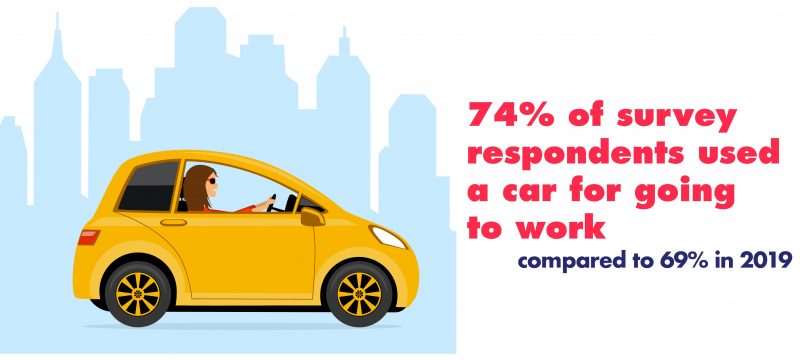
The results of the latest survey carried out by the EU Mobility Observatory* show that Europeans increasingly relied on private cars for daily travel and longer trips in 2020.
The FIA European Bureau’s annual survey set out to explore changes in people’s mobility habits that have occurred in response to the COVID-19 pandemic and the various restrictions applied by European governments. Respondents from seven countries provided information about their mobility behaviour in 2020, which was compared to data from 2019.
The EU Mobility Observatory’s 2020 survey was carried out by eight mobility clubs that are all members of FIA Region I: ACA (France), ACI (Italy), ACP (Portugal), AL (Finland), MAK (Hungary), RACC (Spain), RACE (Spain) and TCS (Switzerland). Around 30 000 individuals participated in the survey by providing responses to a set of common questions. The interviews were conducted between September and December 2020.
The survey’s key findings show that the private car remained the preferred means of transport for both daily commuting and longer journeys:
Laurianne Krid, FIA Region I’s Director-General, commented: “The COVID pandemic had a significant impact on people’s daily mobility and tourism choices. Nevertheless, the private car not only kept but consolidated its role as the preferred means of transport for both short and long distances.”
“While cars remain crucial for meeting people’s mobility needs,” she continued, “there are several ways that policy-makers can mitigate the impacts of road transport without restricting citizens’ mobility. These include:
* The EU Mobility Observatory is a joint initiative developed by FIA Region I and its members in order to carry out coordinated multi-national surveys on strategic mobility issues. Previous surveys have focused on advanced safety vehicle technologies (2018), data privacy issues (2019) and the use of smartphone apps to facilitate urban mobility (2020).